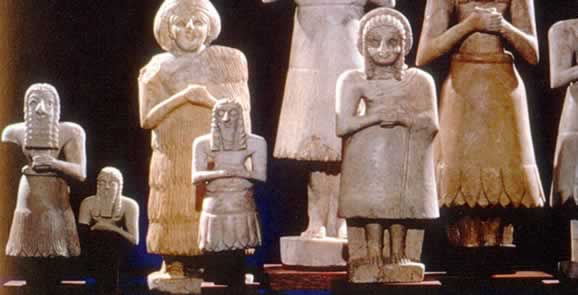My husband and I recently saw the movie Everest, a tragic spellbinder about two expeditions that met with massive storms while attempting to scale the mountain. We left the theater asking ourselves why anyone in their right mind would devote their life to something so life-threatening. Not only were these men and women climbers driven by a vision of mastering that mount at the top of the world; as they pressed into the arduous training rituals and exercises, their identity became formed by that vision.
The reality is, we all hold certain visions of what we believe will fulfill our longings. While most visions aren’t as grandiose as scaling Mount Everest, ours spur us to develop habits of life. These habits shape and deepen our desires until the vision becomes our identity.
In the traditional religious sense, liturgies are practices that direct our longings toward life in God’s kingdom, fueled by a vision of God and his love for us. Liturgies of praise or Eucharist or gratitude or confession or forgiveness or the Word are ways of practicing our part in the gospel story, forming our souls, and shaping our identity in God.
Secular liturgies, on the other hand, flow from a vision rooted in some other story, one with its own set of practices and rituals. What might be the fables behind an unrestrained engagement with digital resources? How might our online habits be shaping our souls or forming our identities as those who find their joy in something other than God? Here are a few possibilities:
- Incessant engagement with video or social media games might be liturgies that direct our hearts and love toward achievement and competition, shaping our identity as those whose longings are met in success.
- A continual pursuit of the latest, greatest computer, smartphone, tablet, or other technological wonder might be a liturgy that directs our hearts and love toward greed, shaping our identity as those whose longings are met in material possessions.
- Posting our every move on social media or live-streaming our activity might be a liturgy that directs our hearts and love toward being noticed or admired, shaping our identity as those whose longings are met in social status.
- A voyeuristic interest in the lives of others, especially celebrities, might be a liturgy that directs our hearts and love toward a fantasy world, shaping our identity as those whose longings are met in wealth or fame.
- An obsession with technical interactions (emails, texts, posts, tweets, live streaming, and so on) might be liturgies that direct our hearts and love toward other people, shaping our identity as those whose longings are met win popularity, acceptance, and approval.
These are only a few, but the point here is that our Internet activity has the power to “malform” us.” via=”no”] When our online practices direct our hearts and love toward rival gods, we are committing idolatry, a sin that not only grieves God’s Spirit but damages our souls. As Scripture shows us, when this happens, instead of becoming more like Christ, we become more like the gods upon whom we have set our affections. By examining these practices, then, we may gain insight into where our desires have gone awry.
Becoming Like Our Idols
Marshall McLuhan, a 20th-century Canadian scholar, is respected today as the original media theorist who predicted the World Wide Web long before it came into being. McLuhan said that people who embrace the tools technology offers without acknowledging how they, and indeed the culture at large, are impacted by them, are sleepwalking through technological change. Famous for the phrase “the medium is the message,” McLuhan argued that regardless of what content it might deliver, a medium itself is transformative. So, for example, because television captures our attention but doesn’t require us to act in any way, it produces in us a kind of mindlessness, something brain scans have affirmed. Because the Internet sends us from link to link, willingly securing information for us, our thinking becomes shallower and we’re plagued by attention deficit. Because social media takes place in sound bites with little accountability, we lose the capacity for empathy and lack sensitivity to people’s real needed.
Philosopher Douglas Groothius points out that McLuhan drew his inspiration partially from Psalm 115:4-8: Their idols are silver and gold, the work of human hands. They have mouths, but do not speak; eyes, but do not see. They have ears, but do not hear; noses, but do not smell. They have hands, but do not feel; feet, but do not walk; and they do not make a sound in their throat. Those who make them become like them; so do all who trust in them.
Groothius expanded on this, noting that one of the simplest yet most profound truths of Scripture is that we become like what we behold. The more we gaze at something — such as our iPhone — and give it our attention, the deeper neural pathways are laid, which alters the structures of our brains. Thus as we fix our eyes on Jesus — as we give him our attention and make him the object of our heart’s affections, guided and empowered by his Spirit within us — we develop neural pathways that match his character, and thus we will become like him.
Groothius unpacks this from a spiritual perspective:
What we love to behold is what we worship. What we spend our time beholding shapes our hearts and molds us into the people we are. This spiritual truth is frightening and useful, but it raises the questions: What happens to our soul when we spend so much time beholding the glowing screens of our phones? How are we changed? How are we conformed?
As we bring our digital lives, our technological devices, and our virtual worlds into loving conversation with God, we must ask for spiritual revelation regarding not only the amount of time we spend beholding our digital screens, but the ways we are seeking to satisfy our souls in that space. Now, perhaps more than ever before, we must fight to secure the time and focus to allow the gentle voice of God to break through our busyness, pierce our hearts, and show us how we, driven by the technology we can’t live without, are falling short of the glory for which he created us.
Tricia Rhodes is the author of several books, including The Soul at Rest and Sacred Chaos. She and her husband founded New Hope Church in San Diego. She is currently an adjunct professor of practical theology at Fuller Seminary. Visit her at soulatrest.com.
Taken from The Wired Soul copyright © 2016 by Tricia McCary Rhodes. Used by permission of NavPress. All rights reserved. Represented by Tyndale House Publishers, Inc.












